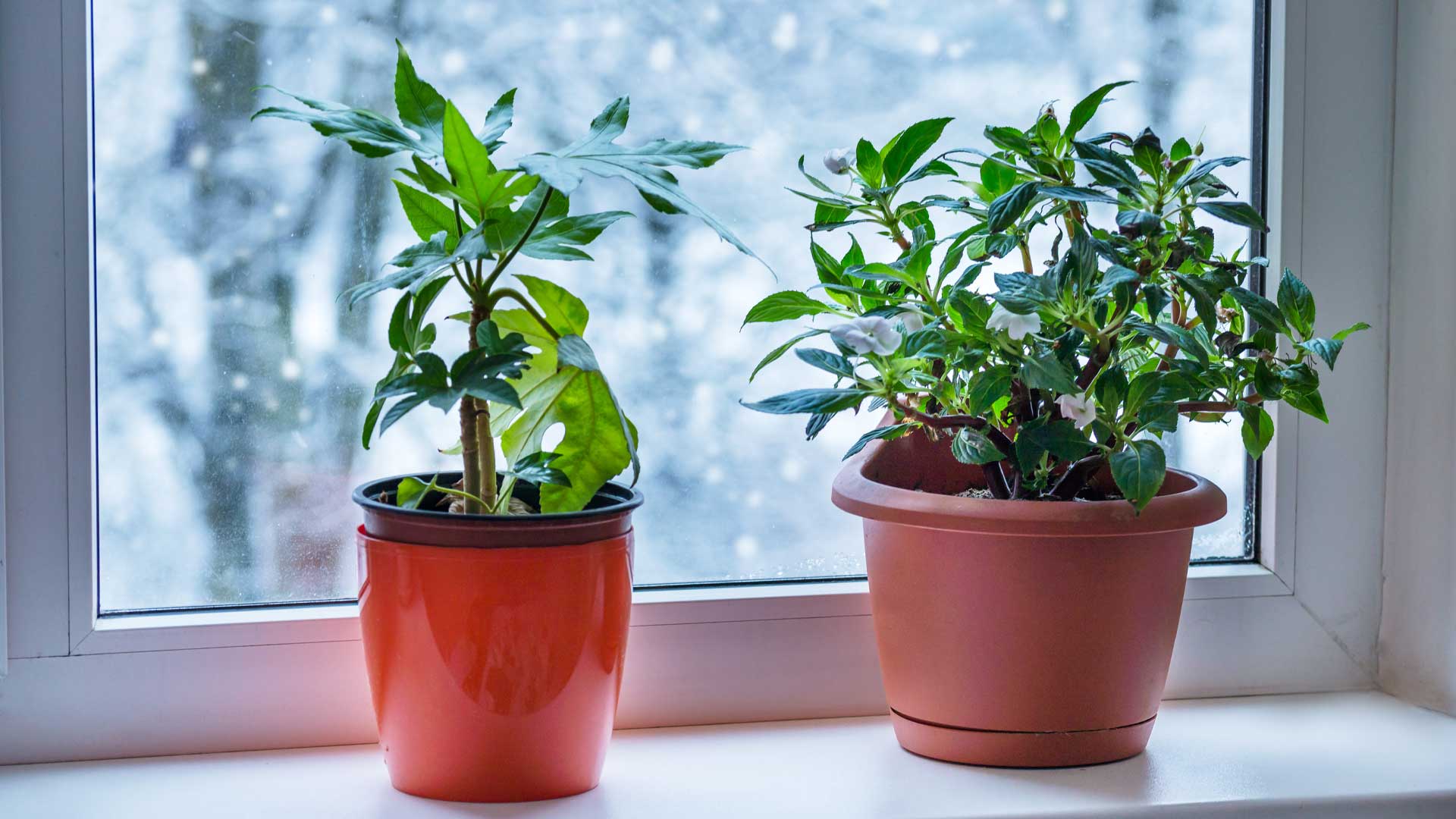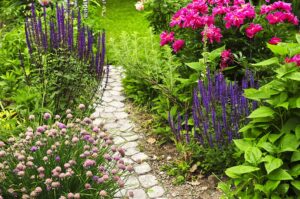Having plants in your home is a great joy, they add life and colour, purify the air and give a great sense of pride to those who care for them, provided of course that they are kept alive and healthy. We are fortunate to experience four distinct seasons throughout the year, and each has its good and bad points. Our long, cold winters are certainly not ideal for most houseplants that originate from warm, sunny and humid tropical environments. If you want your plants to stay beautiful and get through the few winter months more easily, you need to adjust the conditions in which they grow and the care they receive. Here’s how to take good care of your houseplants during the winter.
Lighting
It is no secret that there is less light in winter than in summer. The sun is out less often, for less time each day and its rays are less powerful than at other times of the year. Some humans experience a drop in energy and productivity at this time of year – Hello SAD! – and the same is true for plants. Instead of the 13 to 15 hours of sunshine per day that we experience in summer, the shortest days of the year give only about 8 hours of sunshine.
Plants need light to stay alive and healthy. During the winter, keep them as close to the windows as possible and open the curtains so that they can get as much sunlight as possible. Don’t worry, the sun is not strong enough from November to March to burn the plants as it does in summer. Do not let the leaves touch the windows, however, as they may freeze.
You can also add extra lighting to maximize the brightness. Place fluorescent tubes about 30 centimetres above your plants and set the timer for 14 hours. You won’t even have to worry about it afterwards and your plants will continue to grow.
Watering
The water requirements of plants are affected by a range of factors including plant type, size, sunlight and temperature. It is very important to adjust your watering schedule to the needs of your plants. Watering your plant when it doesn’t need water will not do it any favours, on the contrary. There is often a tendency to overwater plants, a bad habit to break, winter and summer alike.
The best way to tell if your plants need water is to stick your finger in the soil up to the second joint. If it’s dry, it’s time to water, if it’s still wet, wait a few days. Simple and effective.
Some plants are dormant or semi-dormant during the winter months and require less water, sometimes not at all for several days. It is very important to respect their need for rest and to adjust.
Humidity
With heating, the relative humidity in our homes drops at a rapid rate. It is not unusual to see humidity levels below 20%. By way of comparison, the average humidity in the desert is 25%. The vast majority of our houseplants are happy at a minimum of 50% humidity, which is no small task to achieve.
To compensate for this, you can group your plants close together, without them touching. As a group, they can benefit from the humidity created by the other plants. You can also either move your plants to a more humid room like the bathroom or add a humidifier to the room where your plants are. Both plants and humans will thank you for it.
Spraying the foliage of plants can also be beneficial as well as placing them on a bed of gravel. Fill a tray with gravel or clay balls and cover them halfway with water. Place your pots on the pebbles, without the bottom touching the water, as you don’t want the roots to be in the water. The water in the tray will evaporate and create a humid atmosphere that is very pleasant for the plants.
If you can create good humidity, your plants will probably need less water. Always check the condition of the soil before watering.
Plant Food
During winter, plants are not growing. Attempting to stimulate them at this time of the year may have more or less interesting results such as wilting. Stop fertilizing from October to March and then start again, following the manufacturer’s recommendations.
The only exception is if you grow your plants under grow lights, you can continue to feed them as normal as your plant continues to grow normally, stimulated by the light you provide.
Your plant needs to take a little time to recover to grow again when spring returns and the days get longer. Avoid repotting your plants during the winter, as they may take much longer to recover. Unless you really need to, wait until spring and you will get much better results.
Pay close attention to your plants’ warning signals. They will give you a clear signal when their leaves fade and change colour or when their stems wilt. If you need help in maintaining your indoor jungle, don’t hesitate to ask our nursery specialists for advice.









